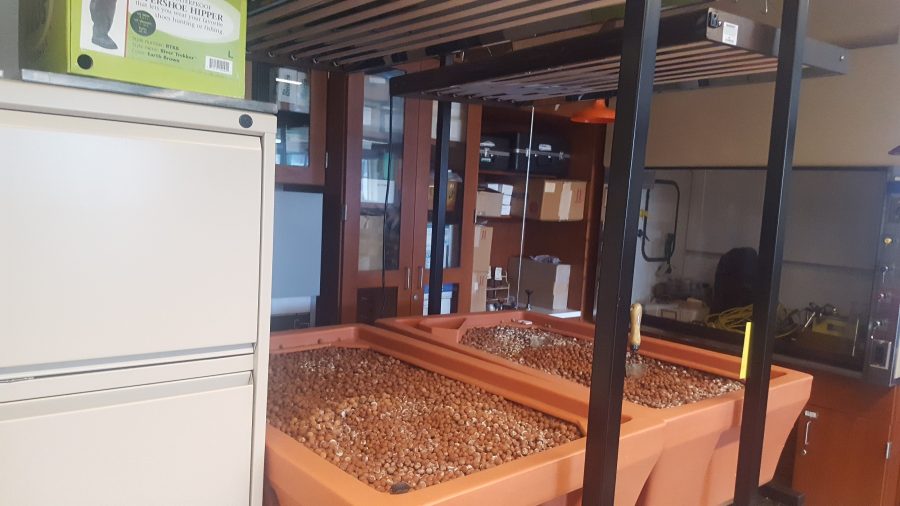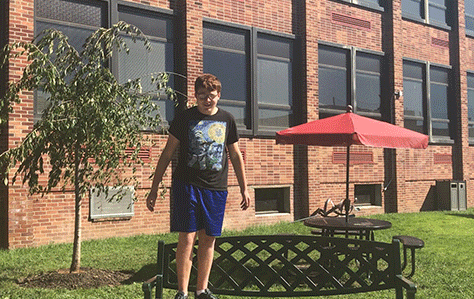Organic tilapia project begins second year
Photo Credit: Ben Solomon
The two growing beds that will use the fish waste as fertilizer, nothing has been planted yet and what will be grown will be decided among the class
October 13, 2016
Environmental teacher Mrs. Heather McDermott continues to raise tilapia fish in a more organic environment in effort to raise healthier fish
The project is in its second year and along with comparing on tilapia raised in an organic environment and tilapia raised on a fish farm, the fish will also be used as fertilizer producers.
The fishes waste and water are pumped into another tub full of small balls made of clay and mud. The water is cleaned by the bacteria in the balls. The waste is absorbed by plant roots.
The fish were used as fertilizer producers because they were not dissected last year. According to McDermott they were previously to small to dissect.
The reason tilapia was selected is because they are regarded as one of the most unhealthy farmed fish because of what they’re fed, other animals waste. They are also kept in water pumped full of pesticides.
The school’s tilapia are instead fed organic fish food.
“It’s minerals, nutrients fish: all different kind of things., Said McDermott.
Talipia are not the only animals that the environmental department is going to obtain,they will also be receiving an annual shipment of trout and getting baby chicks, which is a first for the department.




